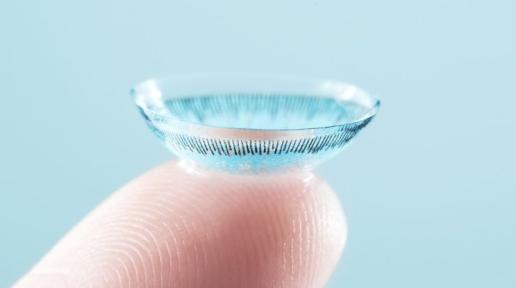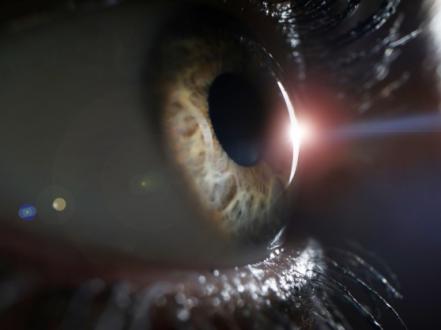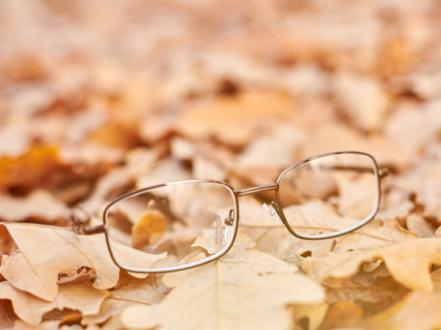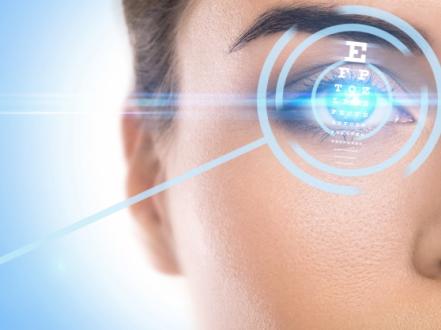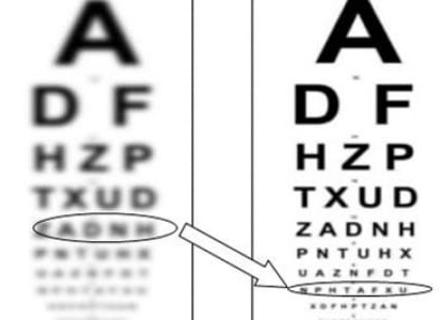People who are visually impaired are more likely to have difficulty with basic everyday tasks and may endure significant discomfort as a result. Since there is no magic solution to improve eyesight naturally or fix existing abnormalities, correcting our vision without expert help may not be an easy goal to achieve. However, there are methods that can help slow or stop the progression of eyesight loss, such as maintaining a healthy weight and eating a vitamin-rich diet.
Never begin a plan for eyesight recovery without first consulting your doctor. Verified eye specialists are the only ones who can diagnose eye conditions and prescribe natural remedies.
Causes of visual impairment and how to prevent it
It is recommended by specialists to quickly review important triggers in order to build an effective strategy for eye protection and enhancing visual acuity:
Genetics
Children whose parents have, for example, glaucoma or retinitis pigmentosa are at a higher risk of having these disorders themselves. But heredity is just a tendency to the illness; it does not cause it. Some pathologies and genetic eye illnesses can be completely eliminated with the right preventative measures and treatment.
The eyes are affected by modern living. These days, people can't imagine modern life without their various electronic gadgets. A modern human being must be concerned about these three things above all others:
- Symptoms of asthenopia, or chronic eye strain, include lethargy, stiffness, and achiness. it may cause major issues.
- The retina, a layer at the rear of the eyeball containing light-sensitive cells, is damaged by the blue light emitted by electronic device screens, which can lead to early age-related macular degeneration.
- "Too much screen time" causes dry eyes, which can lead to stress and exhaustion.
Age-related deterioration
As we get older, our eye muscles atrophy, our pupils shrink, and the lens loses some of its elasticity. To prevent problems like presbyopia, which can develop in the absence of measures to improve eye health, adults over the age of 50 should take special care of their eyes and maintain a regular schedule of eye exams.
Refractive errors
Many people lose some or all of their vision due to eye diseases like hyperopia or myopia. If your eyesight is affected, you'll need to get a new pair of glasses or start using corrective lenses. Reach out to knowledgeable individuals for guidance on selecting the right lenses and determining the corrective eyewear for your needs.
How do you naturally strengthen your vision?
1. Add eye exercises to the schedule
Ophthalmologists strongly recommend resting and doing relaxing exercises regularly throughout the day to diminish your chance of losing vision and improve eye health. There is an array of techniques to restore eye function. Sets of exercises, e.g. near and far focusing, figure eight, palming for eye relaxation, can be chosen by an experienced ophthalmologist. Check our guide about eye exercises.
2. Keep track of how much antioxidants, vitamins, and nutrients you eat
Maintain a balanced diet rich in fruits and vegetables while keeping tabs on your vitamin, antioxidant, and nutrient consumption. Since the antioxidants lutein and zeaxanthin are responsible for visual acuity, eating spinach, broccoli, green peas, salad, and sorrel is a smart move. Dairy products are beneficial for eye health since they contain zinc, vitamin A, and calcium. Both substances shield the cornea from damage and slow down the aging process. There is mounting evidence that dietary omega-3 fatty acids are beneficial to eye health. So, it's smart to raise your intake of fish, nuts, and legumes.
3. Healthy lifestyle choices
To your scheme of improving vision add quitting bad habits, especially smoking. Physical activity, walking in the fresh air, and healthy sleep are of paramount importance for those who strive to guard their vision. A diet full of saturated fat and sugars can also increase the risks of eyesight conditions, restricting blood flow to the eyes. Thus, control intake of these components.
4. Regular comprehensive eye exams
A complete dilated examination is the sound way to make sure your eyes are healthy. Therefore, you should not ignore alarming signs of discomfort and check your vision every 1-2 years. Having eye exams regardless of visual acuity, specialists will be able to detect serious troubles at the earliest phases when they are able to be healed or cured, as ocular issues at the latest phases are difficult to treat in natural ways.
5. Consider specially formulated vitamin supplements
Scientists highlight vitamins A, C, and E as the most beneficial for the eyes. These elements have anti-inflammatory properties that reduce the risk of condition occurrences, such as macular degeneration. A well-created diet may not always repair vitamin imbalance and deliver all the minerals and substances that inhibit oxidation (β-carotene, Lycopene, etc.) to minimize potential eye dysfunction, so you can support your health with multivitamins and supplements, but consult a doctor to be sure they are right for you.
What exercises can improve my vision?
For a variety of conditions, vision therapy may include eye exercises. You can practice certain eye muscle exercises at home, but it's best to consult an eye doctor for more detailed instructions. Though they won't instantly repair eyesight, these exercises can help alleviate headaches and other symptoms of eye strain. Let’s look at the three most popular training solutions:
- The blinking. We blink less rapidly when interacting with digital devices. Because of this, your eyes may feel dry, gritty, and tired. Blinking slowly can fix the tear film. The oil glands in your eyelids secrete lubricate when you blink. A simple way to train your eyes to blink is to close them, hold them closed for two seconds, and then open them again. To stimulate oil glands while closed, one might pinch the eyelids forcefully on purpose.
- Re-focusing. Staring at a screen for long periods of time, your eyes may require relaxation. The tip here is to stop any activity in front of the screen and look out the window or at the farthest distant thing in the room. Then, for a short while, focus on your index finger. This exercise can benefit your eyes if you do it five times.
- Palming. Make sure to gently cover both eyes with your palms. Covering one's closed eyes with one's palms is called palming. For complete physical and mental relaxation, this technique is ideal. The required level of relaxation may take a few minutes to achieve at times, but other times it is nearly instantaneous. Avoid using palms when covering the face too intensely; instead, consult experienced specialists for instruction on the correct method. However, in most cases, all that is required is to warm up the pads and then apply them to the face, making sure to cover the eyes. Make sure no light can reach your eyes by getting the perfect covering. Then you have to breathe slowly and deeply; this approach has additional advantages for your health in general.
According to the experts, you should do this exercise numerous times a day for the best benefits.
How much screen time is bad for my eyes?
With prolonged exposure, blue light from screens can irritate and strain the eyes. Being exposed to intense light can lead to pain and, if not addressed, irreparable damage.
Digital eye strain is a serious issue for people who spend a lot of time staring at displays. Reduced productivity may result from symptoms such as headaches and trouble concentrating. Eye strain and headaches are two side effects of staring at screens all day on smartphones, tablets, and laptops.
Experts agree that spending more than two hours a day in front of a screen is harmful and can cause temporary problems like headaches, impaired vision, and eyestrain. More severe complications can also develop over time.
What are some signs I should see an eye doctor?
Eyesight may undergo some changes, so seeing an eye doctor might be pivotal. Blurry vision, headaches, night vision problems, and squinting are signals that should not be ignored. Your eyes are critical for perceiving our beautiful world, so be ready to take care of them. Remember that some remedies can help improve eyesight naturally, however, in some scenarios, such aids are not enough, especially if symptoms persist.


